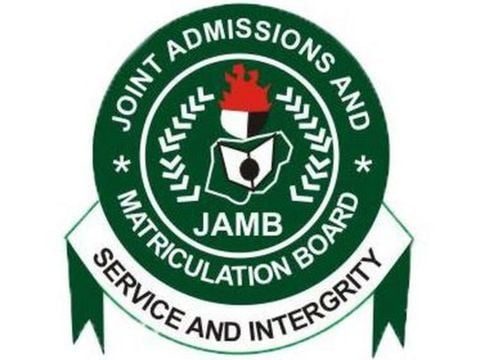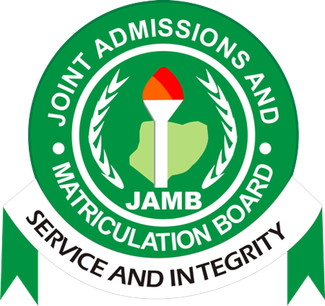Authorities in the Nigerian education sector have been advised to review the policy guiding the procedure for admission of students into tertiary institutions in the country.
Yomi Fawehinmi, Education/Human Resource Professional, said students seeking admission into tertiary institutions should not be made to write three exams, noting that it is unnecessary.
Join our WhatsApp ChannelPrime Business Africa reports that under the current system, to successfully gain admission into any tertiary institutions in Nigeria, students are required to sit for either the West African Examination Council (WAEC) or National Examination Council (NECO) to get Senior School Certificate (SSCE); take the Unified Tertiary Matriculation Examination (UTME) conducted by the Joint Admission and Matriculation Board Examination (JAMB) and another screening test by organised by universities. These processes subject students to different layers of tests.
Fawehinmi, who had served as a lecturer/facilitator in different institutions, including the Lagos Business School, Federal University of Technology Akure, University of Lagos and the University of Ibadan ( CEMAR Campus), suggested that it should be reduced to two.
He stated this while commenting on the recent technical error that JAMB encountered while conducting the 2025 UTME, which affected over 379,000 candidates who sat for the exam in Lagos and the five states in the South-east of Nigeria.
READ ALSO: JAMB: 379,997 Candidates To Retake 2025 UTME As Registrar Admits Error
“Nigerian students should not write three exams to gain admission. I feel we should not have more than two exams,” Fawehinmi stated during an interview on Channels Television’s Morning Brief on Thursday.
He also suggested that the number of institutions that require students to take JAMB exam to gain admission should be reduced.
He pointed out that when the Act (then Decree) that established JAMB was passed in 1978, it was only targeting universities, not other tertiary institutions that have been included today.
“You only wrote JAMB if you wanted to go to a university. In 1978, when the decree was brought out, if you wanted to go to a college of education or a polytechnic, you only used your WAEC. Later, the law was renewed that for you to go to any higher institution, you need to write JAMB and we didn’t reverse that,” he stated.
The educationist stressed that JAMB should reduce the institutions it covers and only focus on university admission to be efficient.
He said the authorities need to adopt a policy that UTME results should not be valid for only one year, noting that in Canada, students can use a particular result to seek admission into universities multiple times, not just for one year as is done in Nigeria.
While citing examples of how students gain admission into higher institutions in other countries like Canada and the United Kingdom, Fawehinmi stated that students in Nigeria shouldn’t be subjected to taking multiple exams before they can be given admission. He maintained that only SSCE (WAEC or NECO) is enough to gain admission into higher institutions, as is obtainable in other countries.
READ ALSO: 2025 UTME Errors: Sowore Calls On Nigerian Govt To Sack Prof Oloyede, Scrap JAMB
He observed that the condition that led to the creation of JAMB has passed. According to the educationist, it was the committee of vice chancellors that made a request to the Federal Government for the creation of the Board, and the then military government set up a committee which recommended two different bodies – one is a matriculation body and the other, an examination body. However, the Federal government merged the two into one and, in 1978, created JAMB.
He stressed that examination is not the primary purpose of JAMB. “There are five primary roles of JAMB of examination is just one of them,” Fawehinmi highlighted.
He said people have focused only on the aspect of examination, while JAMB has not, in the last decade, been able to get people into higher institutions, which is its primary goal.
Commenting on the outcome of the 2025 UTME, Fawehinmi expressed concerns that JAMB only responded and urgently conducted the review because of massive complaints from members of the public.
“It is not fair that over 300,000 students got results they shouldn’t get,” he stated.
He said JAMB lacks the strength of character to take feedback from the public and correct its shortcomings, adding that such is not helpful for such an educational institution, which should promote continuous learning.
On his part, Professor Kolawole Kola-Kazeem, former Provost, College of Education, Ilesa, Osun State, acknowledged that the current JAMB registrar, Professor Isaq Oloyede, has brought in a couple of improvements in the Board, which shouldn’t be dismissed because of what just happened.
Professor Kola-Kazeem stated that whoever is responsible for the infraction should be identified and dealt with to serve as a deterrence to others in critical positions of responsibility.
READ ALSO JAMB: How To Check 2025 UTME Results
He said some of the students who participated in this year’s UTME have been subjected to trauma and made to face unjustified difficulties.
While noting that what happened was due to human error, Kola-Kazeem stated that sacking the registrar or scrapping JAMB is not the best option. There is always room for improvement,” he stated.
The ex-provost said all efforts should be on taking necessary steps to improve the activities of JAMB to serve the country well in the education sector.
Also, Fawehinmi said he doesn’t support the call for the sack of Oloyede, but should be allowed to learn from the mistakes and improve.
Victor Ezeja is a passionate journalist with seven years of experience writing on economy, politics and energy. He holds a Master's degree in Mass Communication.













